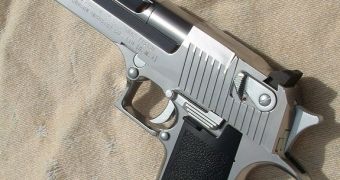You've probably heard by now, that in Virginia, a lunatic went on the rampage, shooting 32 people before turning the gun on himself. And in America today, everyone - including the President himself - is searching for answers. How can this have happened? How can it be that such a thing can have happened in this great country? And most of all, how can it be prevented in the future.
America, the land of the free. Unfortunately, free to do anything you like, including randomly killing thirty people because you had a bad day.
I personally think that the issue of gun control, propagated by almost every new channel and journal, is misdirected.
U.S. will never be able to prohibit the use of weapons by the general public. Why? Because an outlaw can easily get his hands on a gun, illegally, anyway, while the civilian will become defenseless. Plus, the criminal will also have a psychological advantage, knowing that he can enter any home, at will, without fear of getting shot, since weapons would not be accessible to civilians.
The most reasonable thing is to introduce new smart guns that can be fired only by an authorized user. The idea is not all that new, and it has been portrayed in movies like "Judge Dredd", where the weapon of a police officer could not by fired by anyone else, since it required the official wearer's DNA authentication.
This technology is not yet available, but there are some propositions to ensure the correct use of a gun.
A new technology has been developed that could help prevent gun tragedies, especially when a gun is used by someone other than the gun's licensed owner. Researchers have designed, built and tested a handgun that will fire only when its component circuitry and software recognize the grip of an authorized shooter. The technology measures not only the size, strength and structure of a person's hand, but also the reflexive way in which the person acts. For the smart gun, the observed actions are how the person squeezes something to produce a unique and measurable pattern. Embedded sensors in the experimental gun then can read and record the size and force of the user's hand during the first second when the trigger is squeezed.
Another device, already on the market, could prevent criminal acts and careless mistakes.
When you buy the gun, you must fill out an identification card and register your fingerprints. This information is stored in the gun's memory chip. To operate the gun, you must place your thumb over a scanner on the handle of the gun before you can shoot it. If someone else tries to operate the gun, and the fingerprints don't match, it will lock and not shoot.
Of course, there is no 100% warranty with either of these applications, since criminal minds are always trying to outsmart security systems, but it could still mean that only a few resourceful fellows will know how to overcome the safety measures, so ordinary wackos will not be able to discharge their anger on innocent civilians, in the form of bullets.

 14 DAY TRIAL //
14 DAY TRIAL //